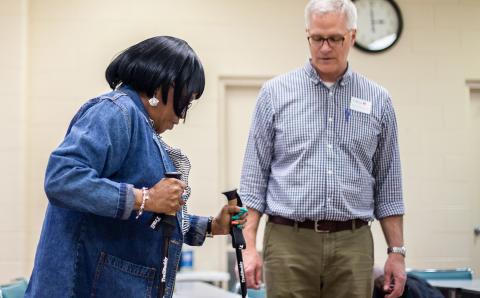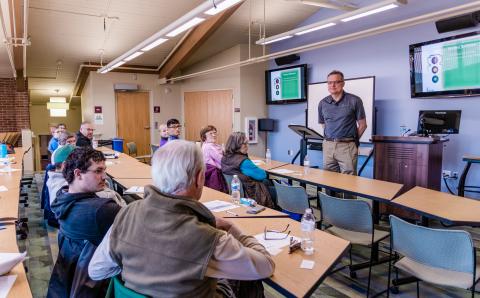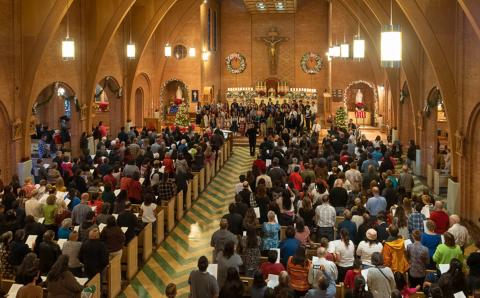It happens to me quite often: Someone asks whether I’ve pastored a church, and I start by saying, “No. Before I stepped into this role with the CRC, I was a college president.” That usually leads to more questions, and soon I’ve laid out my unusual vocational journey: special education teaching principal, pediatric psychologist, college administrator and professor, college president, and then executive director of the CRCNA.
For some of us, God’s calling comes with a singular focus in a clear and unmistakable way for a lifetime. But that isn’t always the case. You’ve probably heard a statistic that the average person has seven different jobs in his or her lifetime. I’m getting close to hitting the average!
And it is not just the number of jobs a person holds that can vary. It seems there are new types of jobs and new ways of working everywhere. Some people work at home for a company half a continent away. Some work part-time or flexible schedules in order to make time for family or passions. And some pastors are called to simultaneously pastor a church while also working in an additional endeavor. Some call these pastors, “bivocational.”
Synod discussed bivocational pastors earlier this summer. While the number of congregations in the CRC remains fairly consistent, the average size of those congregations is decreasing. This means we have more small congregations than before. For example, the number of congregations with fewer than 100 adult professing members has increased from 40% to 45% of our churches in the past seven years, making it challenging for some congregations to support a full-time pastor.
That’s just one of the many factors leading some congregations to consider having a bivocational pastor. Some ministers prefer this dual-focused role; they find their “other job” is an opportunity for evangelism, connecting to the real world, or a better use of their varied set of gifts.
The task of being a bivocational pastor, however, is not as simple as dividing one’s work in two. As CRC bivocational pastor Jose Rayas once reported, “Although the bivocational pastor has two incomes, he is fully the pastor of the church and should not be considered ‘part-time.’ He is to tend all the pastoral duties of the church.”
I resonate with Rev. Rayas’ comments. I’ve been a member of larger churches and smaller churches, but the many tasks of ministry seemed to me, in all of these settings, neverending. Yet, the trend of bivocational pastors is one we must face. I have three suggestions:
First, we need to learn from those denominations and traditions that have long relied upon bivocational pastorates. Many ethnic minority communities, for example, can help us understand how the expectations of congregants can best be aligned with those of a pastor whose service is divided.
Second, we need to erase a bias that isn’t always spoken but is often felt: that a congregation with a bivocational pastor is failing to meet a standard of worthwhile ministry. This simply isn’t true. Look at the many examples of tent-making ministry in the New Testament.
Third, let’s be supportive of synod’s action to set up a task force in order to look more carefully at bivocational ministry. Let’s trust the Spirit will guide the task force so we can welcome a model of ministry that will certainly be with us in the years ahead.
About the Author
Steven Timmermans served as the executive director of the Christian Reformed Church in North America from 2014 to 2020.
Steven Timmermans se desempeñó como director ejecutivo de la Iglesia Cristiana Reformada en América del Norte de 2014 a 2020.
Steven Timmermans는 2014 년부터 2020 년까지 북미에서 기독교 개혁 교회의 집행 이사로 재직했습니다.









